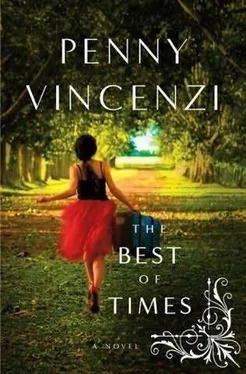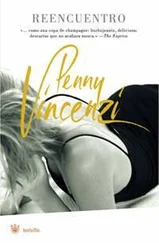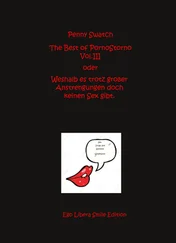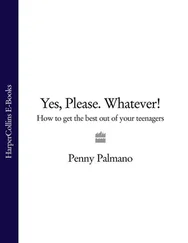Penny Vincenzi - The Best Of Times
Здесь есть возможность читать онлайн «Penny Vincenzi - The Best Of Times» весь текст электронной книги совершенно бесплатно (целиком полную версию без сокращений). В некоторых случаях можно слушать аудио, скачать через торрент в формате fb2 и присутствует краткое содержание. Жанр: Современная проза, на английском языке. Описание произведения, (предисловие) а так же отзывы посетителей доступны на портале библиотеки ЛибКат.
- Название:The Best Of Times
- Автор:
- Жанр:
- Год:неизвестен
- ISBN:нет данных
- Рейтинг книги:3 / 5. Голосов: 1
-
Избранное:Добавить в избранное
- Отзывы:
-
Ваша оценка:
- 60
- 1
- 2
- 3
- 4
- 5
The Best Of Times: краткое содержание, описание и аннотация
Предлагаем к чтению аннотацию, описание, краткое содержание или предисловие (зависит от того, что написал сам автор книги «The Best Of Times»). Если вы не нашли необходимую информацию о книге — напишите в комментариях, мы постараемся отыскать её.
The Best Of Times — читать онлайн бесплатно полную книгу (весь текст) целиком
Ниже представлен текст книги, разбитый по страницам. Система сохранения места последней прочитанной страницы, позволяет с удобством читать онлайн бесплатно книгу «The Best Of Times», без необходимости каждый раз заново искать на чём Вы остановились. Поставьте закладку, и сможете в любой момент перейти на страницу, на которой закончили чтение.
Интервал:
Закладка:
And his voice, not deep, quite light really, but very clear, calling her as he did a hundred times a day, for he liked to know where she was in the house, not so much to be constantly with her as to be able to find her if he needed to. “Where are you, Sparrow?” he would shout from the hall, the kitchen, his study, and she would answer him, quite impatiently sometimes, for she liked to do as she pleased, be where she wished… And what would she have given now, she thought, arriving home that first day from the hospital, arriving home to that quiet, dead house, to be summoned, called to account. Now she could wander where she would, from room to room, to the garden and beyond, and no one would care or need to know.
He had died peacefully and apparently happily, twenty-four hours after the stroke, with Mary holding his hand; she hoped above all things that he knew she was there. The nurses assured her he would.
She had sat by him almost all that time. “They don’t make them like that anymore,” one of the nurses said, looking at her small, upright figure, her eyes fixed on Russell’s face, and indeed they did not, the doctor had agreed; they were a special breed, her generation, with the courage to face down for six long years the worst that a savage enemy could do to them and still remain strong, generous, merry hearted.
When she finally became exhausted, they urged her to sleep, but she refused to leave the room, and they brought her a bed so that she could stay with him. She slept fitfully, woke every hour or so to make sure that he had not gone, and was afraid even to go to the bathroom they had made available to her.
“He won’t go without you, Mary,” the ward sister had said. “He’ll wait until you are back with him again; they do, I promise you.” But she didn’t believe her and each time came scuttling back into the room, fearful of not having properly been with him at this, their darkest hour together.
She had been told that hearing was the last sense to go, and she talked to him from time to time, told him how much she loved him, how happy she had been with him, how wonderful their few months together had been.
“I shall go to Italy, dearest Russell,” she said, “even without you. I will see it for you, all those wonders, as I know you would have wished. And I shall watch the spring garden grow and the apple trees blossom in the orchard, and when the baby thrushes fly I will know you are part of it all.”
Every so often his hold on her hand tightened and she would tense, thinking he was coming back to her; once he seemed to try to speak; once he half smiled. But in the end he left her, slipped away with a sigh and a long, long breath, and she knew it was over without having to be told, knew that she was alone now, alone in the room, alone in the world.
They all came, of course, his children. Shocked, grieving, but saying that it had after all been a blessing, given how much he would have been changed, how poor the quality of his life would have been, and that he could not have suffered; it had been so swift, so mercifully swift. Mary listened, politely patient, nodding, smiling, sometimes weeping, but thinking that he was their father, not their husband; he was not the centre of their worlds anymore. So much easier to see it as a blessing, given all that; so very much harder for her.
Her children came too, Christine remorseful, as well as visibly grieving; Douglas shocked; and Tim and Lorraine both genuinely and horribly upset. All rallying round, loving her, but quite unable to comfort her, to ease the jagged place in her heart.
She kept telling herself that a year ago, Russell had been no more to her than a writer of letters, a happy memory. She had been content then; she would be content again. But it was not quite true, for she had changed; Russell’s love and vigour and generosity had brought her back to life, had given her indeed more life, a new, broader, richer one. She had grown accustomed to a voice in the darkness, a presence in the bed, a smile first thing in the morning, a kiss last thing at night; to a face opposite her at the table, an arm to take as she walked. She had come to enjoy ideas, suggestions, to being argued and reasoned with, to being appreciated and loved.
The funeral was small, family only, apart from the Connells, who had become family. In the same little church where the wedding had been. Maeve found it almost unbearable, looking at Mary standing beside the flower-covered coffin, all alone, when three months earlier she had stood beside Russell, becoming so happily his wife. She was brave, so brave-cried only once, when the coffin was carried in-and after that held her small, strong self together.
Morton spoke of a wise and wonderful father who had been all the world to him; and then Tim, briefly, of a new grandfather in his life whom he had come to love and revere.
“And who made my grandmother absolutely happy. They never seemed old to us, just a wonderful couple who had found each other, and relaunched their lives. We shall remember him always. And we will take care of Grandma for him.”
And then Russell left the church again, and was buried in the small churchyard; Mary stood looking down into the grave, quite composed, even when she threw the handful of earth onto the coffin; then she walked quickly away, on Tim’s arm. Her flowers went into the coffin, with her simple message: “Russell, thank you, with all my love.”
Morton stayed only a few days, Coral and Pearl for over a week; Mary was glad of their company but more glad when they left. She wanted the house to herself, to grieve and to explore her feelings. It seemed very large, very empty, very silent. But Russell lingered in every room.
One of the hardest things to deal with was his clothes, the vast dressing room in which he stored literally dozens of suits-more than Donald had had in his whole life, she thought: jackets, trousers, shirts, drawers full of ties and sweaters and belts and the silk pyjamas without which he said he would not be able to sleep. She stood there one afternoon, looking at them all, remembering him buying them-or some of them-seeing him wearing them, wondering where to begin sorting them out and getting rid of them… and then realised she did not have to begin at all. They could stay there for as long as she wished.
She applied the same principle to his study, to all his absurd gadgets, some of them hardly used, most of them quite useless to her; she called Timothy and told him to come and take what he wanted, and then after that she simply kept it all.
It was all part of Russell, this superabundance of things; and therefore, now, part of her.
She found routine helpful; she walked in the morning, watched TV in the evenings, in the company of the kittens-another source of comfort-making a great effort to watch at least some of the vast number of DVDs Russell had brought and told her she would enjoy… and in the afternoon, she played the piano, his last gift to her. She found this more comforting than anything; she had found a teacher, a sparky sixty-year-old called Genevieve, who came to the house twice a week, saw exactly what Mary needed, and created quite a punishing programme of pieces and practice. Moreover, if Mary hadn’t done her practice, she didn’t tell her it didn’t matter, but that if she hadn’t improved by her next lesson, she wouldn’t teach her anymore. She also entered Mary for her grade-three piano exam (she had passed one and two as a child) and booked several concerts for them to attend together in Bath, “just so you can hear how it should be done.” Mary was frequently to be found weeping over the piano in the afternoons, partly through frustration, partly through sorrow, but she knew it was helping her more than she would have believed.
Читать дальшеИнтервал:
Закладка:
Похожие книги на «The Best Of Times»
Представляем Вашему вниманию похожие книги на «The Best Of Times» списком для выбора. Мы отобрали схожую по названию и смыслу литературу в надежде предоставить читателям больше вариантов отыскать новые, интересные, ещё непрочитанные произведения.
Обсуждение, отзывы о книге «The Best Of Times» и просто собственные мнения читателей. Оставьте ваши комментарии, напишите, что Вы думаете о произведении, его смысле или главных героях. Укажите что конкретно понравилось, а что нет, и почему Вы так считаете.












